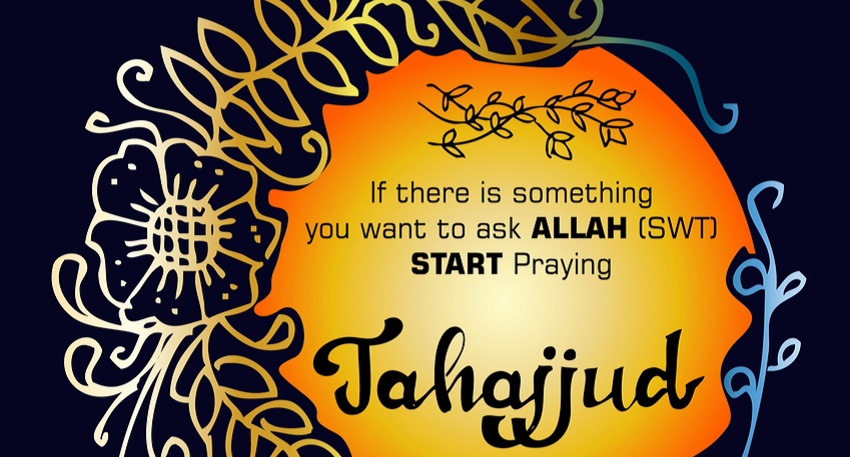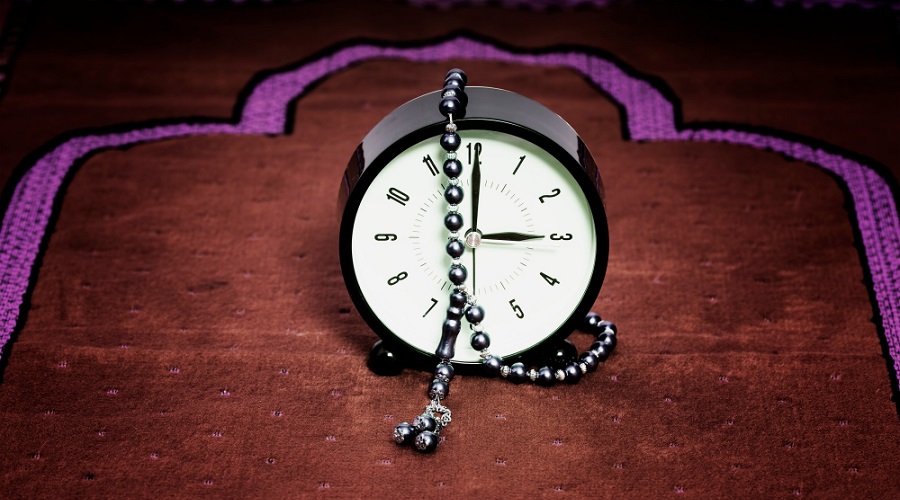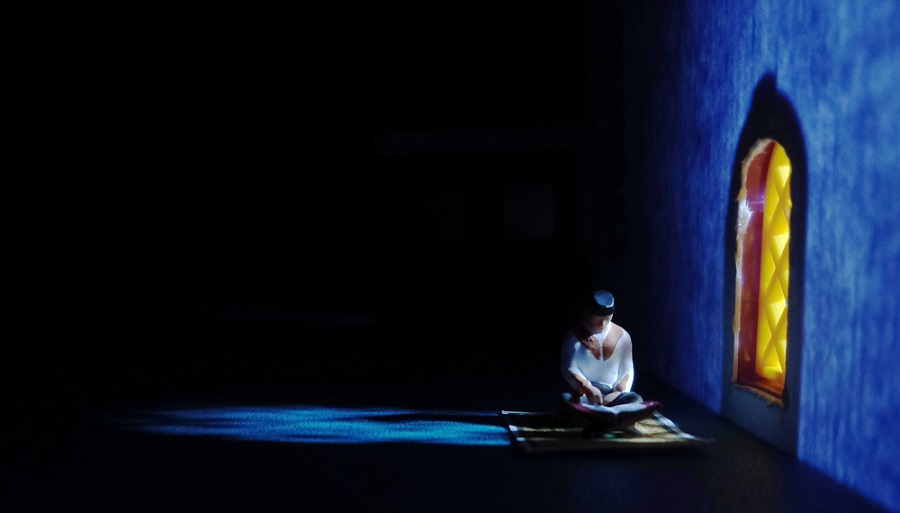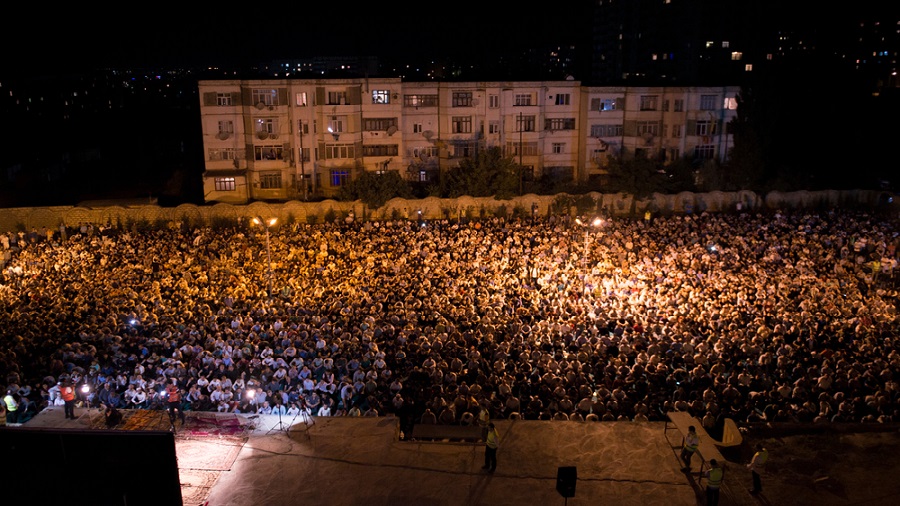Tahajjud prayer is a nafl or voluntary prayer. It is a night prayer that is offered to attain mental strength and peace. It is also known to avert acts of sin. Prayer (Salat) — one of the Five Pillars of Islam, is segregated into four main types:
- Fardh Salat: The most important prayer in Islam; it is compulsory, and missing it is considered to be a major sin.
- Wajib Salat: It is compulsory, and missing Wajib Salat is regarded as a grave sin too.
- Sunnah Salat: Known to be Prophet Muhammad’s (PBUH) practice, Sunnah Salat is again segregated into two categories, namely Muakkadah and Ghair Muakkadah. The former is to be practiced regularly, and missing the same is regarded as a sin. However, missing the latter one, which is said to be practiced intermittently by Prophet Muhammad (PBUH), is not considered punishable.
- Nafl: The last of the four main types of prayer, Nafl is not compulsory and is usually performed for an extra virtue. Missing this prayer is not considered to be a sin.
Tahajjud meaning
Tahajjud is an Arabic word derived from “h-j-d”, which menas to remain awake at night. Therefore, it is also known as the night prayer. As one has to perform Tahajjud in between the Isha and Fajr prayer, one has to wake up at night for the prayer. The prayer is highly rewarding due to its mentions in the Quran and by the Prophet (PBUH).
What is Tahajjud Prayer?
Also known as Qiyam-u-lail, the Tahajjud prayer falls into the fourth category of prayers, i.e. Nafl, implying that it is optional and missing it isn’t counted as a sin. The Tahajjud prayer is usually performed after Isha (which is the compulsory nightly prayer) and before performing Fajr (the mandatory morning prayer). Tahajjud means to give up sleep, which is why this prayer is preferably performed during the last third of the night. According to Islam, Allah comes down to the lowest heaven during this part of the night to see who is dedicatedly worshipping and leaving their sleep in the middle of the night.
Importance of Tahajjud Prayer
Also known as the ‘night prayer’, the Tahajjud prayer is not considered to be obligatory. However, there is a great significance and several blessings associated with Tahajjud. Believed to be the most virtuous amongst the Nafl prayers, the Qiyam-u-lail is considered to be a part of the Sunnah of Prophet Muhammad (PBUH).
“And from [part of] the night, pray with it as additional [worship] for you; it is expected that your Lord will resurrect you to a praised station.” (Quran, 17:79)
Those who perform Tahajjud prayer regularly are sure to earn the blessings of Allah. It is also said that this prayer brings a Muslim closer to the Almighty and his/her life is filled with peace and brightness. The holy Quran as well as several Hadiths emphasize the importance of Tahajjud prayer.
“And they who pass the night prostrating themselves before their Lord and standing.” (Quran, 25:64)
“The Lord descends every night to the lowest heaven when one-third of the night remains and says: ‘Who will call upon Me, that I may answer Him? Who will ask of Me, that I may give him? Who will seek My forgiveness that I may forgive him?’” (Bukhari, Muslim)
How to Perform Tahajjud: Prayer Method
Although this prayer isn’t mandatory, many Muslims around the world make an effort to incorporate Tahajjud prayer in their everyday routine to earn mercy and forgiveness from the Almighty. Here are some important guidelines, laid down by Prophet Muhammad (PBUH), for performing this prayer:
1. When to pray Tahajjud?
This special Islamic prayer is performed during the last third part of the night and before the commencement of the Fajr prayer. The time for this prayer is when angels descend from heaven on Allah’s command to take duas of all of Allah’s servants. It is during this time that Allah forgives the offenders, who have atoned for their sins.
2. How many rakats are there in Tahajjud prayer?
One can repeat rakats as per their desire. For Tahajjud prayer, usually, two rakats are considered sufficient. As per the Hadiths, Prophet Muhammad (PBUH) used to perform nearly 13 rakats frequently. Here, it is also important to remember that for Tahajjud prayer, rakats should be performed in pairs.
3. How to prepare?
- Make proper arrangements to wake up in the third part of the night. This may include setting an alarm or asking family members to wake you up before the Fajr prayer.
- Clean your face, hands (till elbows), head, and feet (up to ankles) properly.
- Find a peaceful and clean place to perform the Tahajjud prayer.
- When sitting down for the prayer, devote completely to Allah and His glory. All worries from the mind and heart should be eliminated.
- Learn how to read clearly and properly.
4. How to pray Tahajjud?
While starting the prayer, it is important to make a note in mind that the prayer will be completed according to the chosen way, which includes reciting a few rakats and surahs. Also, the purpose of saying the Tahajjud prayer should be decided, i.e. whether it is to seek the mercy of Allah, to thank the Almighty, or to glorify the supreme power.
Here is how to recite Tahajjud. To begin, two rakats of Salah are performed initially. One must stand and recite the verses from the Quran. Following this, praying continues by bowing to Allah while both hands are placed on the knees. Next, face the ground with palms, nose, and forehead touching the floor in complete devotion to the Almighty. In this position, the elbows are slightly raised and the feet folded. Then stand up and recite “Allahu Akbar”.
After the rakats, you can add your own set of dua for the Tahajjud prayer. The dua should be sincere and completely devoted to Allah. While performing the prayer, one should acknowledge their misconducts and offenses, and ask the Almighty for mercy. Make a sincere promise to not repeat the mistakes and strive to become a better human being.
5. Exploring the Tahajjud
- One should devote time to reading the Islamic scriptures to gain a better understanding of the Tahajjud prayer.
- One should follow the footsteps of Prophet Muhammad (PBUH) by comprehensively studying how to perform the Tahajjud prayer. By doing this, one can come closer to Allah and lead a blessed life.
As narrated by Hazrat A`isha (R.A): “Allah’s Apostle used to offer eleven Rakat and that was his prayer. He used to prolong the prostration to such an extent that one could recite fifty verses (of the Quran) before he would lift his head. He used to pray two Rakat (Sunna) before the Fajr prayer and then used to lie down on his right side till the call-maker came and informed him about the prayer.” (Bukhari)
- Incorporating the Tahajjud prayer into an everyday routine is the last and ultimate step. It is an optional prayer, but an important one as it brings one closer to Allah. It is also associated with gifts of redemption and forgiveness by Allah and therefore is a wonderful way of asking mercy for every day’s sins and failures. It should also be kept in mind that the Almighty is appreciative of performing the prayer regularly.
Niyat of Tahajjud prayer
Niyat is ones heart intention to make sincere dua and prayers to the almighty Allah. Therefore, there is no verbal content or niyat for Tahajjud but the intention of performing the Tahajjud prayer and seeking closeness with the almighty.
Tahajjud prayer dua
There is no specific dua for Tahajjud but one can include supplications and verses from the holy Quran. Along with it one can recite the following dua:
Dua: “Subhanallahil-`Adheem, Wabihamdihi, Subhanallahil-Azhim”
Translation: Glory be to Allah, the Most Great, and all praises are due to Him, and glory be to Allah, the Almighty.
Benefits of Tahajjud Prayer
The Tahajjud prayer is associated with several benefits and rewards. As Tahajjud salah involves waking up in the middle of slumber, it is said to offer great rewards from the Almighty. Here are some of its benefits along with Hadiths regarding the same.
1. Tahajjud prayer is one of the best ways to attain closeness to Allah.
“Be vigilant in standing up [in prayer] at night, for it was the practice of the pious before you. It is a means of gaining proximity to Allah Ta’ala, expiation for transgressions and a barrier from sins.” (Tirmidhi)
2. The Holy Quran also mentions that those devoting time to praying Tahajjud reap great benefits.
“And the servants of the Most Merciful [Allah] are those who walk upon the earth easily, and when the ignorant address them [harshly], they say [words of] peace, and devote [part of] the night to their Lord prostrating and standing [in prayer].” (Quran 25:63-64)
3. Tahajjud prayer is that it gives inner strength and mental peace. It also has the capability to avert acts of sin and wickedness. Also, according to the Islamic tradition, the third part of the night is the best time to make wishes/duas.
Prophet (PBUH) said: “During the night there is a time when the Muslim does not ask for the good of this world and the Hereafter but it will be given to him, and that happens every night.”
4. Also known to be the best among the voluntary prayers, one major benefit of performing Tahajjud is that it helps with everyday problems. While performing this prayer, one completely places their trust in Allah and leaves all worldly worries. When a believer leaves everything to the Almighty, the supreme power then assists different sources.
“And He will provide him from (sources) he never could imagine. And whosoever puts his trust in Allah, then He will suffice him. Verily, Allah will accomplish his purpose. Indeed Allah has set a measure for all things.” (Surah Talaq Ch 65, V3)
5. It is also said that the Tahajjud prayer grants patience even in the face of problems. Incorporating Tahajjud into the daily routine is known to bring peace to the distressed heart.
Prophet Muhammad (PBUH) said: “The closest that the Lord is to His slave is in the latter part of the night, so if you can be one of those who remember Allah at that time, then do so.” (Al-Tirmidhi and al-Nisaa’i)
Tahajjud Prayer of the Prophet
Prophet Muhammad (PBUH) also used to perform the Tahajjud prayer regularly. He also encouraged his companions to perform the same. The Prophet used to wake up in the middle of the night, cleanse himself, praise Allah, and recite the following ten-verse passage from Surat Aal `Imran:
“Verily in the creation of the heavens and Earth, and the alternation of night and day are signs for those who understand. (Aal `Imran 3:190)”
Following this, he performed ablution and commenced the Tahajjud prayer by reciting a few verses in praise of Allah. According to Aishah—when Allah’s Messenger got up at night for Tahajjud, he used to extol Allah’s greatness ten times and then praise him ten times. Then, he would say the words “Glory and praise be to Allah” ten times. Then, he would say “Glory be to the Holy King” ten times and ask Allah for forgiveness ten times. Then, he would say “There is no God but Allah” ten times. He would conclude by saying: “O Allah! I seek refuge with You from the tribulations of this worldly life and the tribulations of the Day of Resurrection.”
Prophet Muhammad (PBUH) initially offered two concise units of prayer, which became much longer when he used to pray alone. Following Allah’s command in the holy book Quran — “Stand in prayer the night long, except for a little“ (Al- Muzzammil 73:2) – Prophet Muhammad (PBUH) used to prolong every step involved in the Tahajjud prayer, be it the supplications, reciting the Quran or even the opening recitations. He used to start the Tahajjud prayer with complete reverence, love, and devotion toward Allah. The words, with which he used to start his prayer, were:
“O Allah! Lord of Gabriel, Michael, and Raphael, Creator of the heavens and earth, Knower of the seen and unseen, You will judge between Your servants in what they used to differ. Guide me by Your Grace to the truth in what they differ about. Indeed, You guide whomever You please to a path that is straight.”
“I turn my face to the Creator of the heavens and earth upon the pure faith, and I am not from among the polytheists. Indeed my prayer, my sacrifice, my life, and my death are for Allah, the Lord of all the worlds, Who is without partner. This is as I was commanded, and I am of those who submit. O Allah! You are the King. There is no God but You. You are my Lord and I am Your servant. I have been unjust to myself and I confess my sins, so forgive me all of my sins, for indeed no one forgives sins but You. Guide me to the best conduct. No one guides to what is best except You. Keep me away from bad conduct, for no one can do this for me except You. Here I am. I heed Your Call, happy to serve You. All good is in Your Hands and no evil belongs to You. I exist by Your Will and shall return to You. You are Blessed and Sublime. I seek Your Forgiveness and repent unto You.”
Tahajjud is an important prayer even though it is not obligatory. Its benefits are immense and can help bring peace and spirituality to the everyday life of a Muslim who performs it with devotion and diligence.
Suggested Read: How To Offer Taraweeh Prayer, Taraweeh Niyyat, And Taraweeh Dua
Tahajjud Prayer FAQs
How many types of Salat are the in Tahajjud Prayer?
The Tahajjud Prayer is segregated into 4 main types: Farad Salat, Wajib Salat, Sunnah Salat, and Nafl.
What is the significance of Tahajjud Prayer?
The significance of the Tahajjud Prayer is mentioned in the holy Quran and in numerous Hadiths. It is believed that whosoever performs the prayer regularly, comes closer to the Almighty Allah, and his or her life is filled with sunshine and peace.
How one should recite the rakats in Tahajjud Prayer?
All 13 rakats should be recited in pairs.
What is the best time for Tahajjud prayer?
The best time to offer Tahajjud prayer is last third portion of the night.
At what time Tahajjud prayer starts?
One can perform the prayer at any time in the night after they wake up from the sleep.
What time is Tahajjud prayer in Ramadan?
The timing for Tahajjud during Ramadan is same as any other night. However, it should be performed after Isha and Taraweeh.
While there is no specific dua prescribed for Tahajjud, believers can make personal supplications during this intimate and spiritually charged prayer.
Tahajjud is a voluntary prayer, and there is no set frequency. It is recommended to perform it occasionally with sincerity and devotion.
Is Tahajjud obligatory or voluntary?
Tahajjud is a voluntary (Sunnah) prayer and not obligatory. It is a recommended act of worship that holds great spiritual rewards.
Should Tahajjud be prayed individually or in congregation?
Tahajjud can be prayed individually, and it is commonly performed in solitude. While congregational Tahajjud is not a common practice, there is flexibility in performing it individually or with family members.











